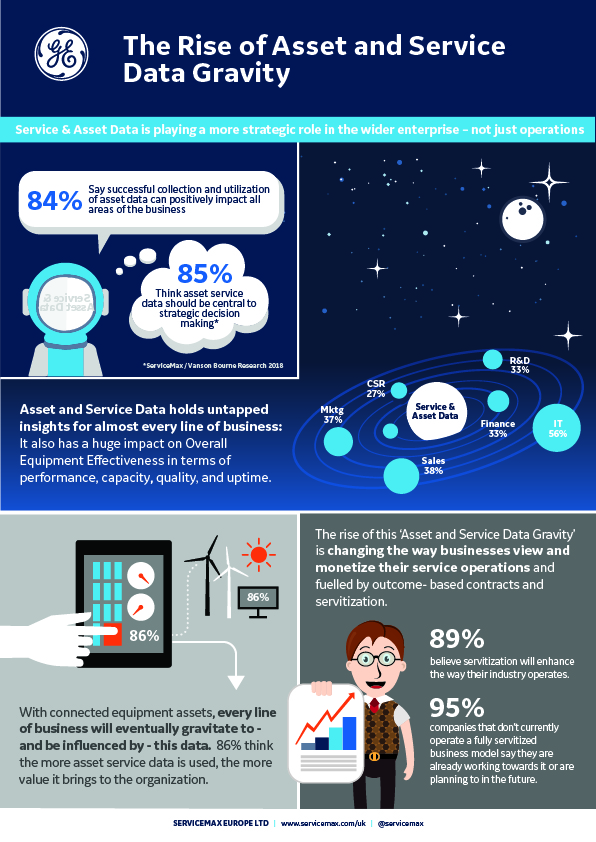Asset and service data will have a gravitational pull beyond service departments, putting a new business lens on enterprise performance, according to a new global research. The report, “The Rise of Asset and Service Data Gravity”, has been conducted by Vanson Bourne on behalf of ServiceMax from GE Digital. By automatically collecting, aggregating and analysing service data related to industrial assets, companies expect a revenue boost of more than 14%. And for every US$1 (€0.85) spent on successful service data collection and usage, companies expect a return of $4.44 (€3.77).
The research surveyed 600 IT decision makers and field service management leaders across Manufacturing, Energy and Power, Oil and Gas, Transportation, Distribution and Logistics, Telecoms and Medical/Healthcare in the USA, UK, France, Germany, Turkey, UAE and Saudi Arabia.
The study found that out of the estimated 187,470 field service work orders conducted on average each year, 15,635 (8.34%) of them remain unaccounted for within organisations, representing millions in lost revenue.
“Businesses are moving to outcome-based, servitised business models where monetising service – and harnessing field service data – is critical to success,” said Mark Homer, vice president Global Customer Transformation for ServiceMax, a GE Digital company. “In a servitised world, the asset is king, and everything revolves around it, such as uptime, availability, mitigating downtime, asset estate insight, performance metrics, and supply chain.
With digitisation, service data is a subset of the asset data, and both hold untapped insights for almost every line of business – from sales, R&D, IT, finance, marketing and Corporate Social Responsibility, and it also has a huge impact on Overall Equipment Effectiveness in terms of performance, capacity, quality, and uptime. The rise of this ‘asset and service data gravity’ is changing the way businesses view and monetise their service operations.”
Almost all 600 of the organisations surveyed (99%) believe that other parts of the business outside of service can benefit from both the automation and better usage of service data. And 85% think service data should be central to decision making, while 87% believe it will have a positive impact on their ability to remain competitive.
“Businesses are expected to have value conversations with customers, rather than product discussions,” added Homer. “As the growing value of service data is increasingly recognised outside of the service department, it is best exploited through a digital platform approach, rather than piecemeal to enable every line of business to positively benefit from its insights.”
For more details about the research and the changing role of asset and service data, click here.

Comment on this article below or via Twitter: @VanillaPlus OR @jcvplus






